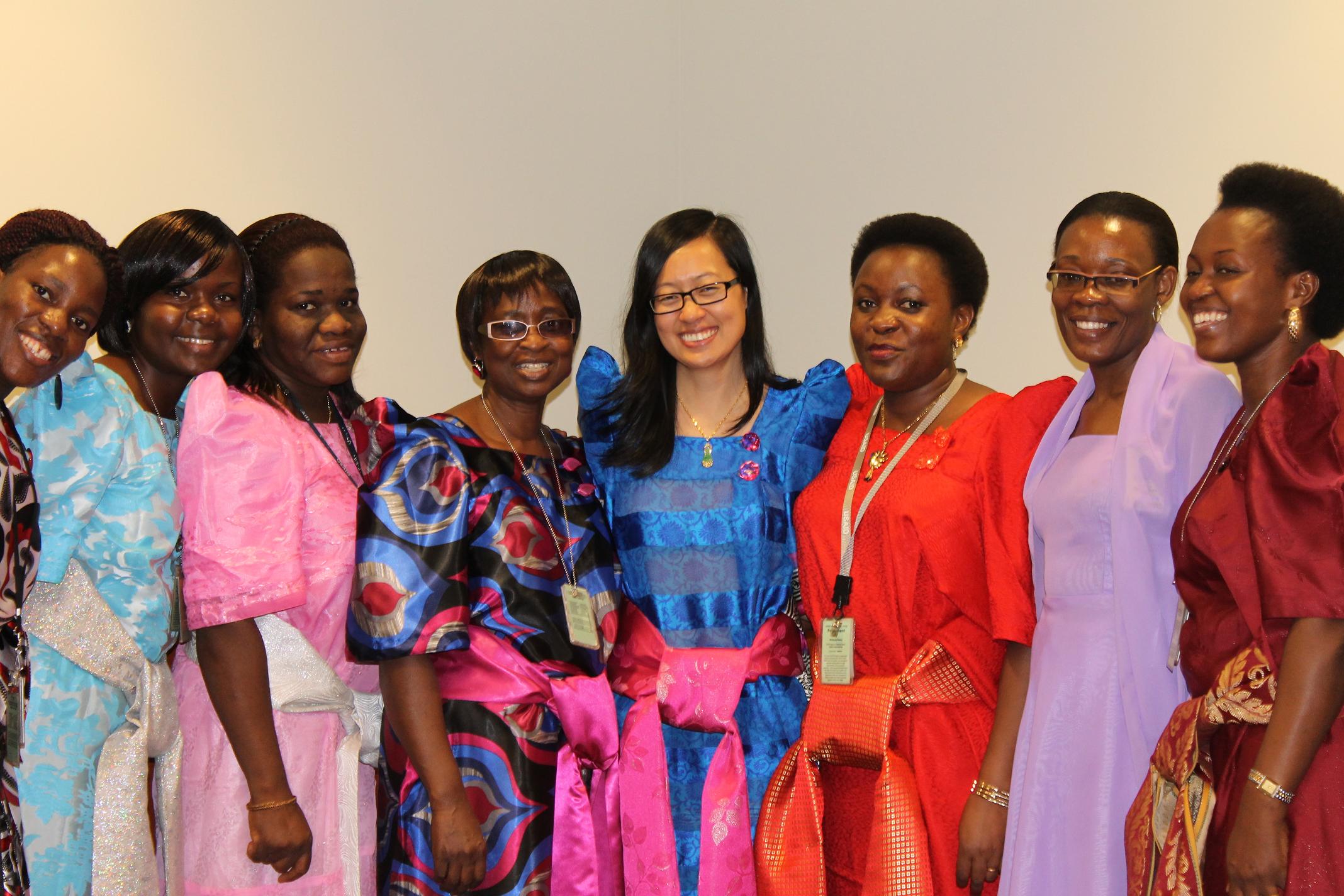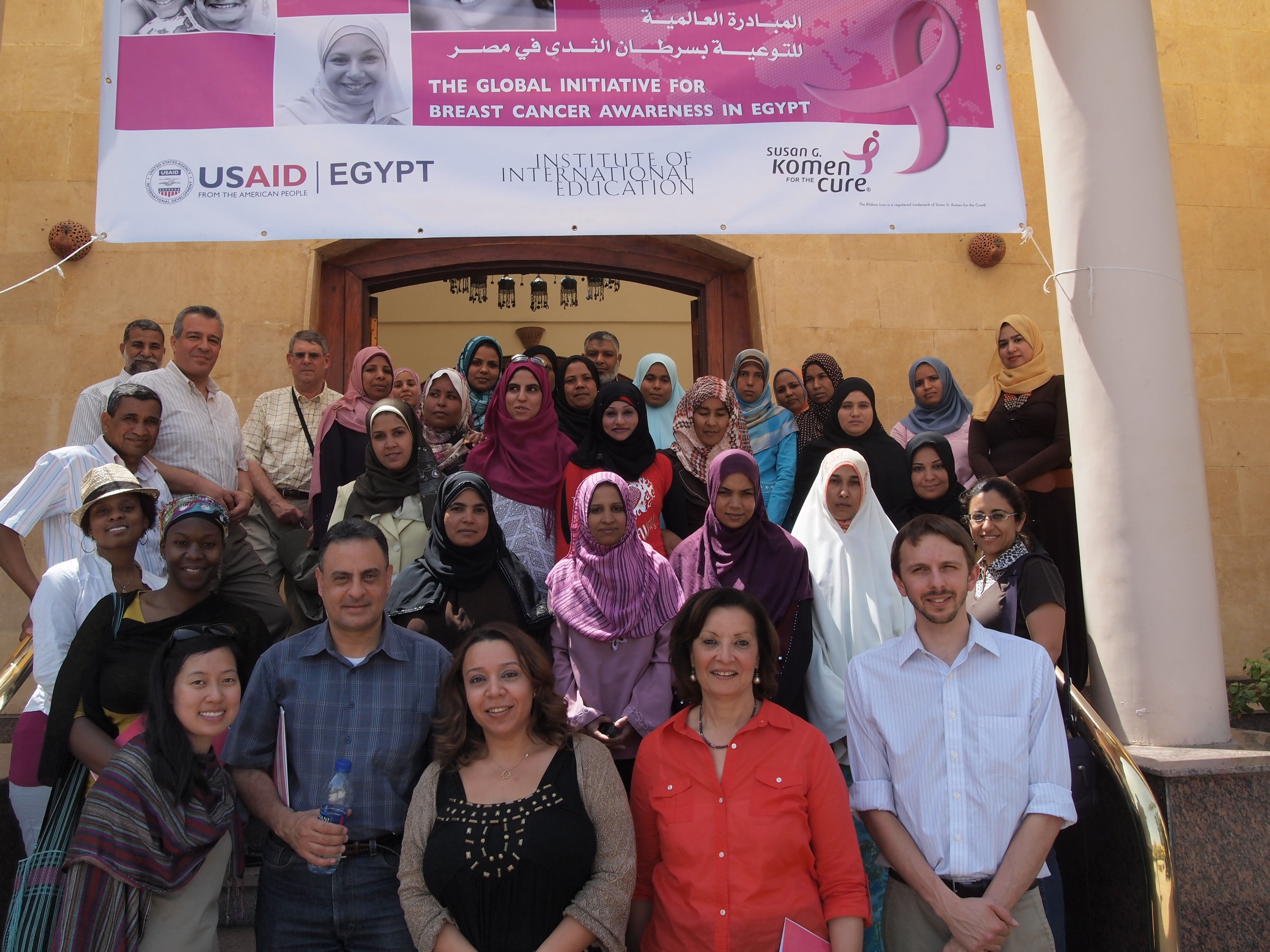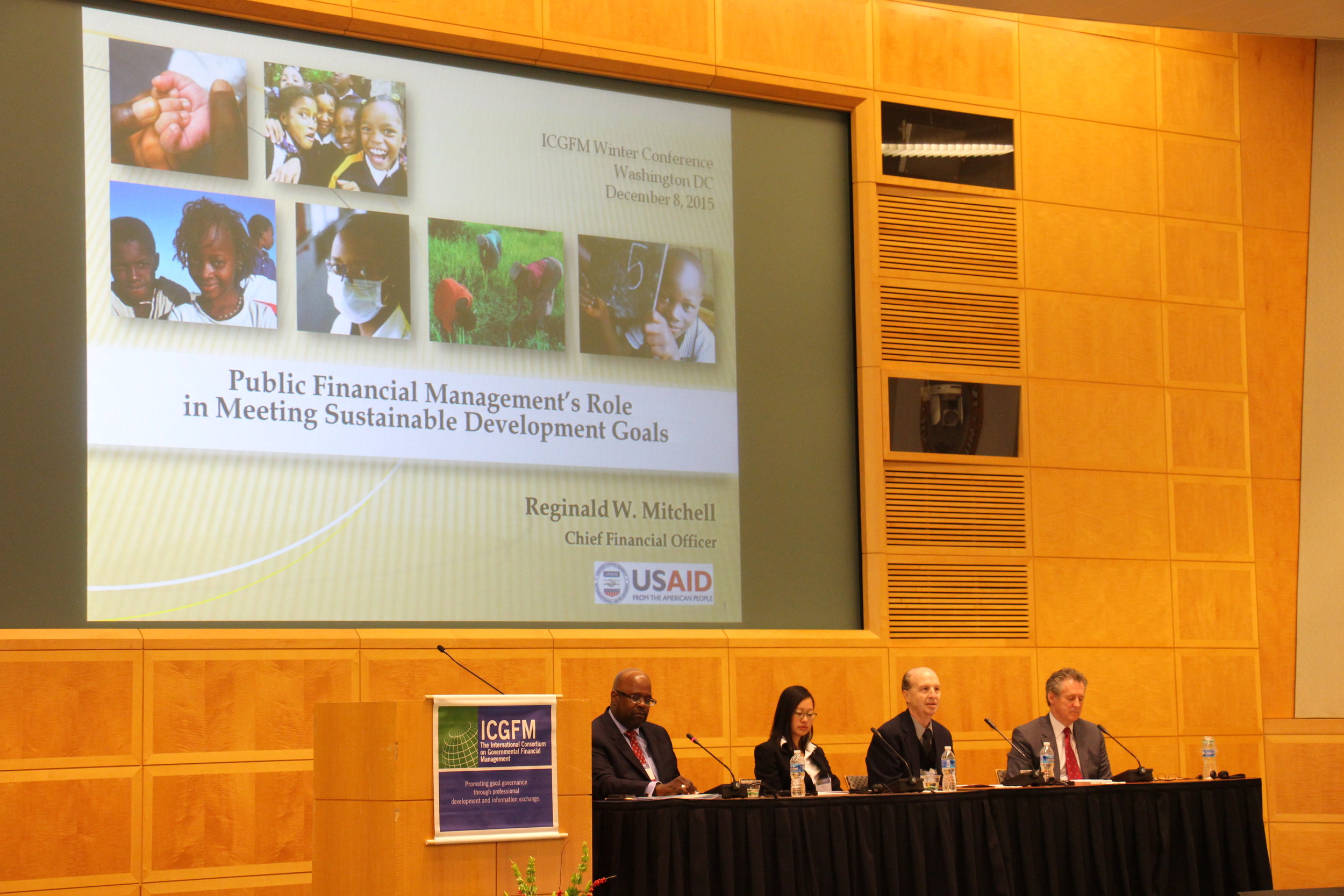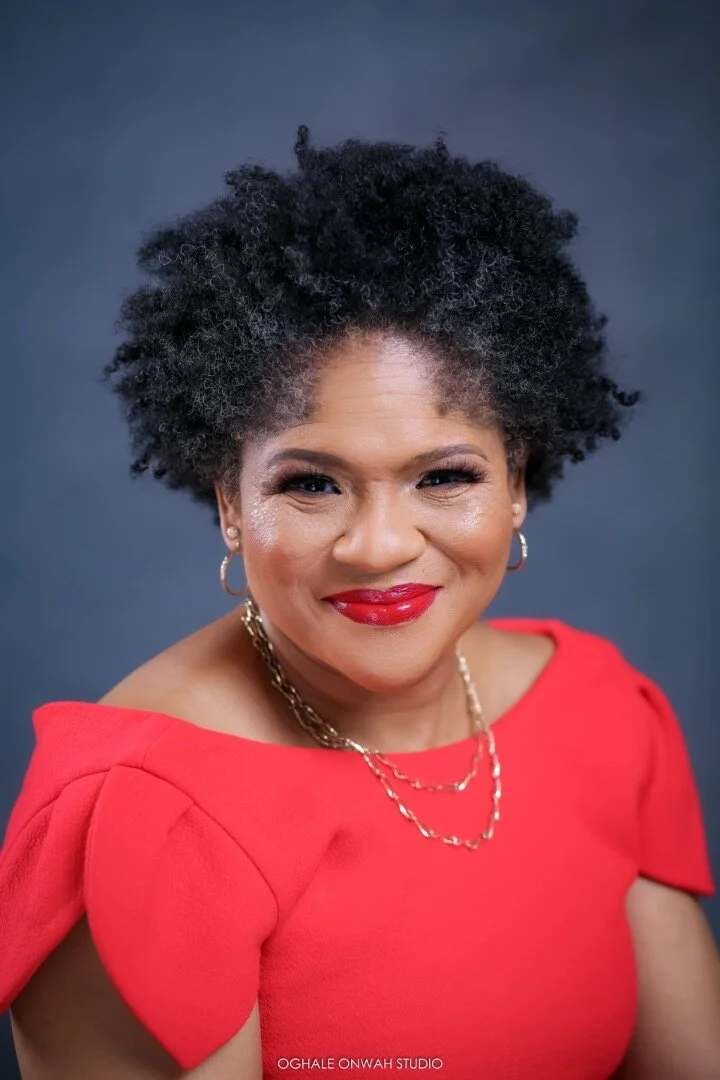Thao Tran
/Director, Financial Management for Sustainable Development | USAID
What do you do, and why?
10 years of experience
Education: BA in Business Administration & MPA at The University of Texas at Austin
Previously worked at: PwC | IMS Health (now Quintiles IMS) | Eagle Global Advisors | USAID
Find Thao Online: LinkedIn
Inspired by Thao's Interview? Apply for a job or internship at USAID | Follow @USAID on Twitter
The work that I do focuses on providing business and finance advice to the technical teams that we work with when they're designing and implementing international development programmes. At USAID specifically, my office bridges the gap between the due diligence processes that we undertake to ensure accountability of the funds of the U.S. government and the capacity development that we provide for aid effectiveness. That is, we build the skills and knowledge that's needed for our partners to effectively manage the resources that they have.
We work mostly in projects and programmes that support partnerships with local actors (which include NGOs, the private sector, and government entities), and in doing so we coordinate with other development partners to ensure that we're collectively working towards the same goals of local ownership and sustainability.
I've always been interested in this field because of my background. I was born and grew up in Vietnam – a beneficiary country of foreign assistance. It’s an interest of mine to see how the assistance that we provide not only contribute to our national security but also cultivate benefits for our partner countries. I've always had an international development focus, and it's great to translate the business-oriented skills I have to helping support countries like my own sustain themselves and improve their own social and economic development.
That's a fantastic ideal. Do you meet a lot of people in USAID that come from a similar background – people who want to work for the organisation because their country of origin is an aid beneficiary?
Absolutely, and I think that's one of the benefits of working there. You get this cohesive experience of collaborating with those who understand the needs of the countries that we’re working in. It's such a rich and diverse environment, and you meet colleagues that have the same motivation as you, so you connect with them quite easily in that sense.
It seems obvious that USAID would need a diverse range of employees who understand cultural factors and use their knowledge to do their work better.
Yes, and that's why we rely a lot on our local staff as well. We actually have more of local in-country staff than we do American staff in our overseas missions, and that's because we understand the value of country context in achieving our development results.
How long have you been working for USAID, and where else have you been stationed?
I've been with USAID for almost seven years. Egypt was my first post, followed by Uganda, and then after that, the Philippines. I came back to Washington, D.C. last year to get more of a headquarters perspective and in my current position, I support our overseas missions from Washington with strategic planning, coordination, and policy implementation.
This means you were in Egypt in early 2011 and after Mubarak stepped down.
Yes, that was quite the adventure!
Could you expand a little more on your experience in Egypt in 2011?
I arrived in the country just months before the revolution in January 2011. Due to the security situation, we were evacuated for a period of about two or three months, returning in April. It was jarring to see and feel the difference in perspective before and after the evacuation; there was a very visible shift in the environment and the conversations people had. I reminisce about those days often, and I still have friends who were journalists and activists in the thick of things during that whole time who provided me valuable insight to better understand what was happening outside the confines of mainstream media. Personally, it was a very raw experience.
You are the Director of Financial Management for Sustainable Development at USAID. In your opinion, what are the biggest challenges to working for such a large government agency? For example, does your work depend a lot on what the government of the day decides to do with USAID, or is it separate from that? Could your budget fluctuate from year to year, or is it always about the same amount?
The money does fluctuate, and priorities may change. A lot of the work that we're doing is trying to carve a pathway to enable our funds to be given directly to our host country governments. That in itself is extremely challenging because you're often working with two very different systems and two very different bureaucracies. Our own systems and processes are often perceived as being overly burdensome, and much of that is due to the accountability measures we must consider in working with US government appropriated funds. However, to the extent that we can, we emphasise the importance of partnership. When working with our partner governments, we see it as both of us coming together to find common objectives and trying to co-design the programmes that would be of benefit to the country and drives their own national development priorities in order to ensure ownership and sustainability.
What skills do you find are most important for managing such a heavy workload?
First and foremost would be flexibility and adaptability. Change is a constant in this field of work, and you almost have to anticipate that there will be roadblocks and challenges in everything you do. It’s important to realise that unexpected things will come up and you cannot predict everything that happens.
Especially when you’re living and working overseas, you are impacted both professionally and personally by changes to your environment, and you can't let that bring you down. You may not have much control over many aspects of life as a Foreign Service Officer, so really it's honing the ability to roll with the changes and to accept that you need to be flexible and work with what you have.
You previously worked in the private sector at PriceWaterhouseCoopers and IMS Health, and also Eagle Global Advisors in Texas. What factors influenced your decision to work for a government agency like USAID?
I never thought I would be working for the U.S. government – I have a private sector background, and I dreaded the idea of navigating a large bureaucracy or becoming a bureaucrat myself. However, the opportunity came up, and I always wanted to live and work overseas. One of the things that resonated with me was that I frequently found myself commenting on international affairs issues, and a good friend said, "If you really have strong opinions about it, then you should be part of the solution. Try to change things however you can, or enter the system and get a better understanding of how it works, why it doesn't and where you can make improvements."
Her advice changed my thinking. It is easier in the private sector in many ways, but when you dedicate yourself to the public service, you have to come with the notion that you are committing yourself to a very different kind of career. While it has only been seven years, I'm continuously learning every single day, and I'm happy to be in an environment where I can continue to accumulate interesting knowledge and work with really inspirational people.
Do you think that there are any particular challenges to not just Vietnamese-Americans, but just American immigrants to becoming foreign service officers?
There is this tension between making money versus committing yourself to public service. As a first generation immigrant family, my parents struggled with that idea, and they would often joke, "We brought you over from Vietnam so that we can escape life in a developing country and live that American dream, and here you are being sent back to work in other developing countries." They can't understand it, and it took them a long time to accept that there is value in a career that deviates from the cultural norm of being a high-earning doctor, engineer, or businessperson.
The other challenge is the lack of similar, visible role models at a senior level. We are diplomats representing the face of America overseas, and yet, my face still isn't what people think of when they think of America. It can be frustrating when my counterparts overseas automatically make the assumption that I'm not the American officer they expected to speak with but a local hire from Asia who happens to speak good English.
It's a perception that you constantly face, and I think it influences your internal mindset. As a child, I could not have imagined myself in this role or even considered that this opportunity is a possible career choice for me. It is essential to recognise that what makes you different, the inherent attributes you bring as an immigrant, is ultimately beneficial in helping you assimilate in other countries and work cross-culturally. The more visibility we have in demonstrating the vast diversity of America in the international landscape, the greater the influence we will have in paving the path for others who have a different background.
Do you have any advice for a young woman who would like to pursue a similar career?
I actually saw a sign the other day that succinctly captures the advice I would give. The sign said, "Go everywhere. Talk to everyone. Eat everything." It made me laugh because that encompasses the reason why I am where I am today. Be open and expose yourself to the unfamiliar and realise that all those little things that you're taking in when you are travelling by yourself, learning from strangers, and even just eating the most bizarre food really do provide you with the necessary foundation for being adaptable and flexible. Those cumulative experiences will be beneficial for this career especially, but also for life in general.






